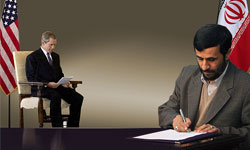I've just added a link in the sidebar to
OhmyNews International, a site that's currently scaring the pants off the established global media as it uses non-professional "citizen journalists" to supply all of its content. Naturally it's based in South Korea, the world's most enthusiastically online country (
GS poll), and has huge popularity over there which is beginning to filter out into the rest of the world.
I've not spent a great deal of time reading OhmyNews, and I'm sure a lot of its content is rubbish, but it does seem incredibly important to begin to pay attention to things like this. Given the significance of the media to everyone with a stake in public attitudes (like governments, companies, civil society...), if people start choosing this type of channel over traditional channels, how will this affect communications, democracy and attitudes?
It's quite true that a lot of people in the media (especially at the just-finished WeMedia Conference) have got overexcited about the changes being wrought by online sources. The poll shows that TV is still first choice for everyone, and any changes in usage are mainly demographically driven, so newspapers have several decades yet before all their loyal readers die. While a fan of getting news online, I still buy a paper every now and then, and the Economist most weeks (although if all its content was available for free online, I might reconsider).
However, we've got to address the fact that the channels through which people receive information will never again be as monolithic as they are now (which isn't to say they're not fairly diverse already). People are not just going to seek out information about their hobbies and interests online, but they will go there for information about local, national and international events, customising it to their interests and increasingly using online sources for the opinion and analysis they want. This is pertinent, because while not many people have trust in the factual news available through non-traditional media, it's where they go for a) reaction to major events from opinion formers they admire and b) the stuff the mainstream doesn't care about/censors/etc.
There are huge benefits to be had: online, independent sources monitor and fact-check the mainstream media and occasionally provide an expert point of view that can discredit alarmist stories. They make it harder for people to get away with doing ridiculous stuff - the example given this week being a Samsung employee who exposed the fact that a team of 500 had been used to plan and check every detail of a director's family holiday to France. When everyone is potentially a journalist, everyone has to consider themselves accountable to the wider world. The risks however are also obvious: citizen journalists don't have the skills of the pros and will often produce shoddy stuff: unbalanced, ill-researched, unfounded, rumours. People who just want to download the day's news will not bother to go searching for it on a string of websites, they'll sit in front of the TV or just go on the BBC News website.
What's interesting is how far ahead of the population the media themselves are. They've been desperately scrabbling around for answers to the web for years; no sooner do blogs become a hot topic than the Guardian website has about 6 up and running, and the Beeb's not far behind. Some content providers will probably go down because they invest too much too early in technologies that don't lift off. They're all concerned right now (I happen to know) about news on mobile devices. Why bother getting on a mobile (which costs money dammit!) when you can use a computer at home or at work to see all the news on a big screen? Maybe I'm wrong about that, but the mobile just doesn't seem like a browsing device to me, and browsing's what it's all about.
Slightly tangential that, but I've been having to think a lot about these things over the past little while. Effects on democracy and attitudes - I dunno right now. I think it's good though.
Read more!


